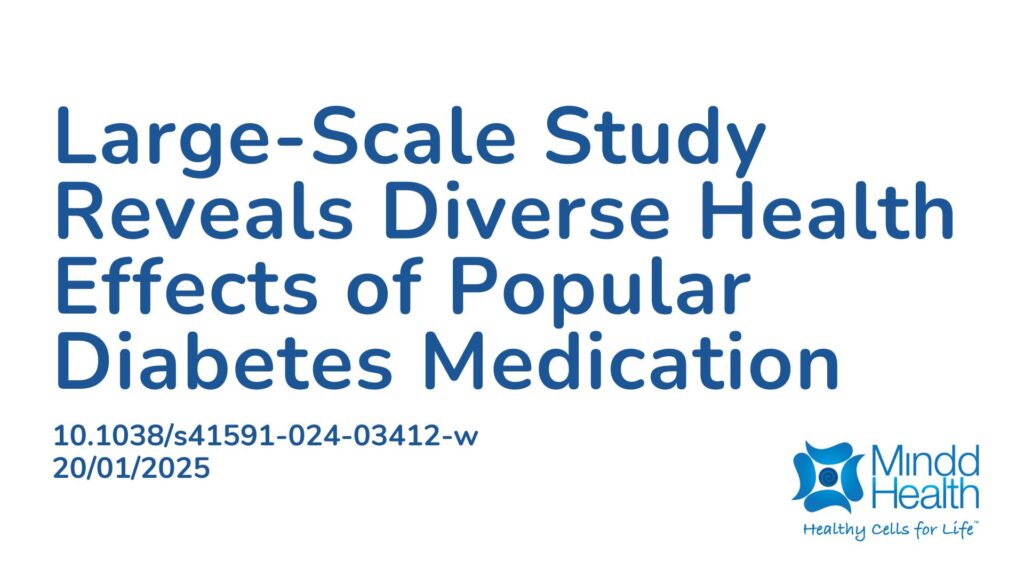Summary:
GLP-1 receptor agonists (GLP-1RAs), also known as Semaglutide medications such as Ozempic, have become popular for their benefits in heart health and weight loss. However, studies suggest they may also cause some gastrointestinal issues while possibly reducing the risk of substance use and neuro-degenerative diseases. This study assessed the effects of GLP-1RAs on 175 health outcomes, comparing them with three other common diabetes medications. Using data from the US Department of Veterans Affairs, the study involved over 1.2 million people with diabetes who were also prescribed GLP-1RAs. Results showed that GLP-1RA use was linked to lower risks of substance use disorders, psychosis, and neuro-cognitive issues, but higher risks of gastrointestinal problems, low blood pressure, fainting, joint pain, and kidney issues. This paper, which is a detailed breakdown of the risks and benefits associated with these popular drugs, provides important insights for clinical care and future research.
Abstract:
Glucagon-like peptide 1 receptor agonists (GLP-1RAs) are increasingly being used to treat diabetes and obesity. However, their effectiveness and risks have not yet been systematically evaluated in a comprehensive set of possible health outcomes. Here, we used the US Department of Veterans Affairs databases to build a cohort of people with diabetes who initiated GLP-1RA (n = 215,970) and compared them to those who initiated sulfonylureas (n = 159,465), dipeptidyl peptidase 4 (DPP4) inhibitors (n = 117,989) or sodium−glucose cotransporter-2 (SGLT2) inhibitors (n = 258,614), a control group composed of an equal proportion of individuals initiating sulfonylureas, DPP4 inhibitors and SGLT2 inhibitors (n = 536,068), and a control group of 1,203,097 individuals who continued use of non-GLP-1RA antihyperglycemics (usual care). We used a discovery approach to systematically map an atlas of the associations of GLP-1RA use versus each comparator with 175 health outcomes. Compared to usual care, GLP-1RA use was associated with a reduced risk of substance use and psychotic disorders, seizures, neurocognitive disorders (including Alzheimer’s disease and dementia), coagulation disorders, cardiometabolic disorders, infectious illnesses and several respiratory conditions. There was an increased risk of gastrointestinal disorders, hypotension, syncope, arthritic disorders, nephrolithiasis, interstitial nephritis and drug-induced pancreatitis associated with GLP-1RA use compared to usual care. The results provide insights into the benefits and risks of GLP-1RAs and may be useful for informing clinical care and guiding research agendas.
Article Publication Date: 20/01/2025
DOI: 10.1038/s41591-024-03412-w






